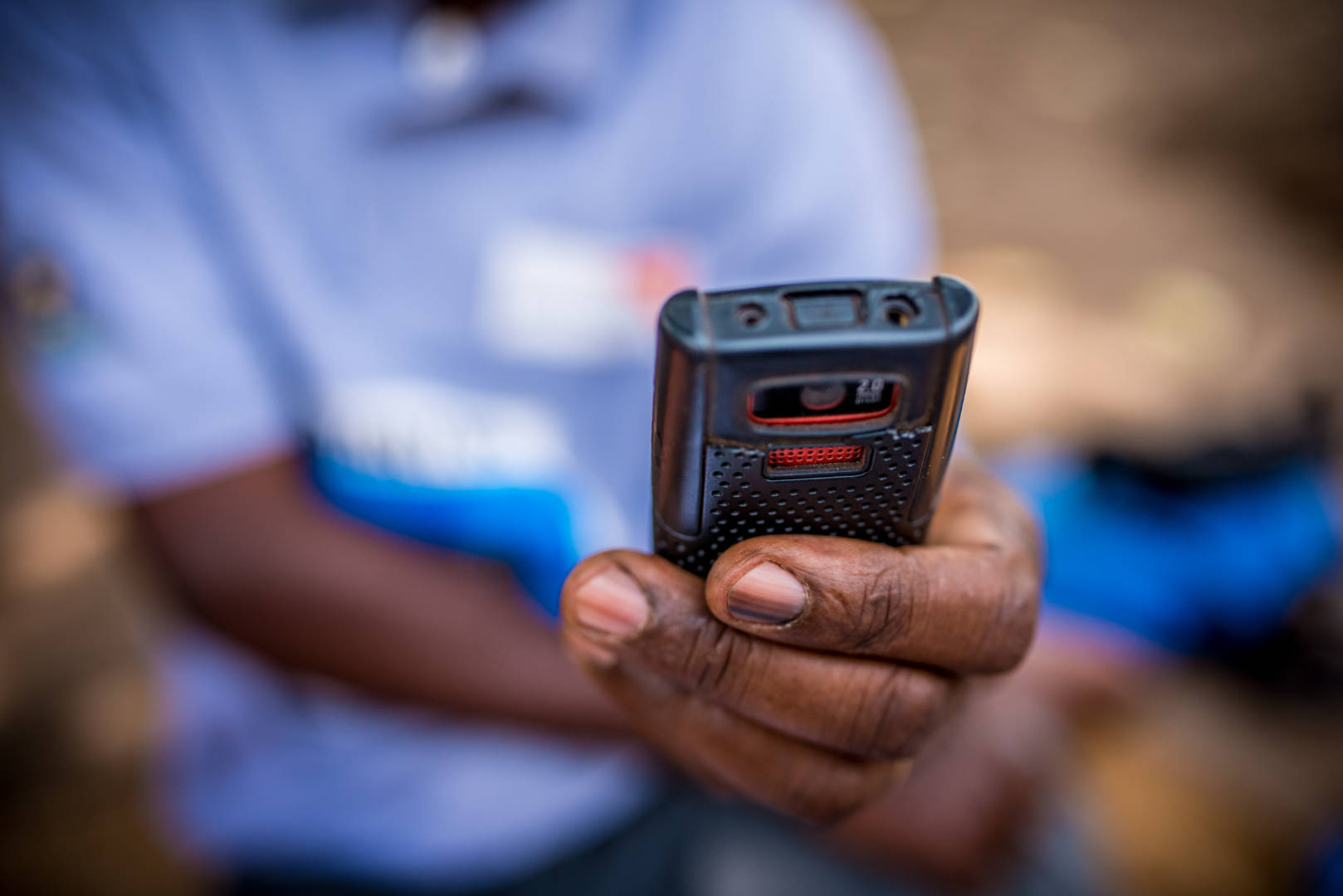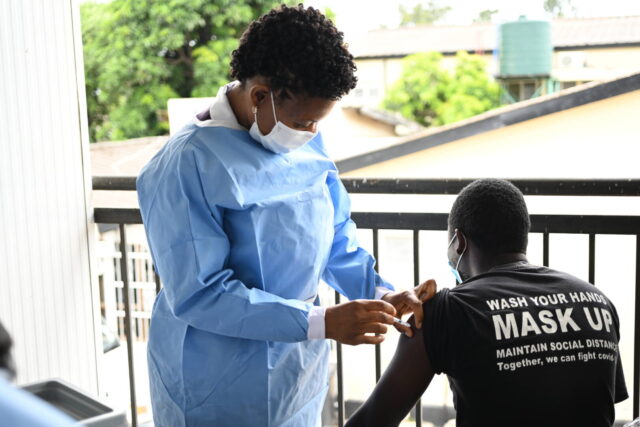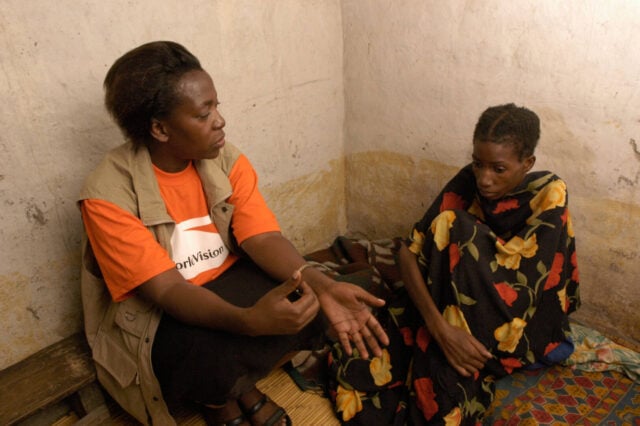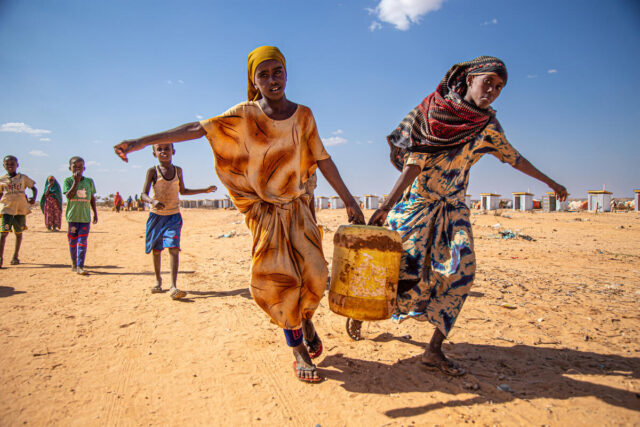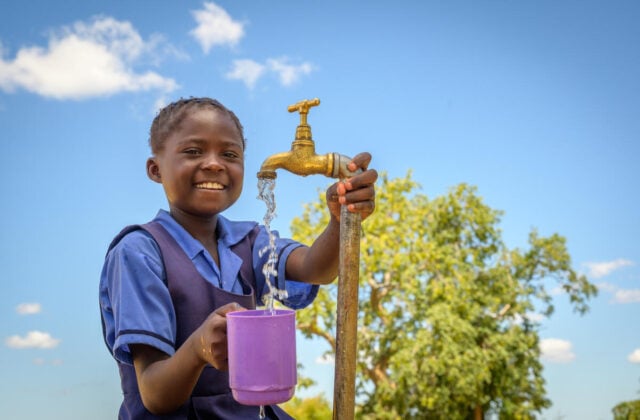Four years ago, Nafas was pregnant with her first child. At seven months, she went into labor and, like many women in rural Afghanistan, she gave birth at home. The traditional birth attendant who was there to help Nafas didn’t have the skill or equipment to meet her needs, so the baby died.
“When I lost my first baby, I got so sad and thought I never will be able to become a mother,” Nafas says.
Her sister had a very different birth experience.
Says Nafas, “My sister was pregnant, and a community health worker visited her twice a week and provided consultation. She delivered a healthy baby in a clinic.
“At that time, I promised myself that if I become pregnant again, I will consult with a community health worker and go to the hospital for delivery.”
The community health worker who visited Nafas’ sister brought advanced diagnostic and medical services to her rural community through a simple tool — her mobile phone.
Through a World Vision project funded by USAID, the local health worker was trained and equipped with mobile health technology, called mHealth.
She could use her cellphone to send and receive information on a particular patient, including progress reports, medical records, and reminders about appointments and treatments. She could also access a wealth of medical information and connect to consulting physicians.
Three years after losing her first child, Nafas had another chance at motherhood.
This time, she sought out Nasima, the community health worker, for regular checkups and advice. Nasima used the information that was at her fingertips, through the mobile phone software. When she detected a problem in the seventh month, she referred Nafas for skilled care at the Herat hospital.
Nafas delivered a healthy baby in early May, about a month early.
A ground-breaking technology and partnership
The Bill & Melinda Gates Foundation, Grameen Foundation, and Dimagi, a tech company that supports healthcare in developing countries, are partners with World Vision in creating and deploying mHealth. It is a version of an open-source mobile solution, MOTECH Suite, funded by Gates.
The shared framework of MOTECH Suite minimizes costs of software development, operations, and support. It also accelerates learning and the development of best practices, which ultimately save more lives.
“I think if Nasima and the mHealth system were not in our village, and if neonatal assistance did not exist in the hospital, my baby would not be alive,” Nafas says.
“There was a lot of coordination by mobile phone so we could receive services on time. Now my baby is being cared for in an incubator, I feed him with my milk, and I learned Kangaroo Care (skin-to-skin contact for pre-term babies),” she says.
Project results benefit new moms
The mHealth pilot project in Nafas’ community has shown good results:
- Mothers who were assisted by health workers using mHealth showed a 20% improvement in attendance in antenatal care, compared to the control group.
- Women in the mHealth groups were 22.3% more likely to deliver at a health facility.
- They were 12.6% more likely to have a birth plan that was coordinated with the health facility.
- Women in the mHealth groups were 12.9% more likely to save money in order to arrange transport to the health facility.
- They knew more than other women about two or more danger signs in pregnancy.
A project staff member told us: “Community health workers using MTS (MOTECH Suite) have more information on antenatal and postnatal care, danger signs during pregnancy, delivery, and neonatal care and they are more active than other community health workers. Also, the referring system in these areas increased, the child mortality rate decreased, and the cost is only $2 per month for each mHealth user.”
Community health workers in Afghanistan say that mothers listen more carefully, have more confidence in their knowledge, and are more likely to take their advice, now that they use mobile phones to access information.
“The phones have brought an effective, positive change in our information, and (they) facilitate our gatherings with mothers,” says one community health worker. “The health problems have decreased in our communities and the level of health information with mothers has increased.”
There are currently 13 mHealth projects around the world, funded by various donors.
As World Vision rolls out MOTECH Suite in more countries and regions, we’ll analyze the complexity and economics of this compared to other models. We’ll plan how to integrate our work with national health ministries to create lasting improvements in health services where we work.
I believe initiatives like MOTECH Suite are the way forward for humanitarian organizations to work with public and private partners to make a significant difference in global health.
